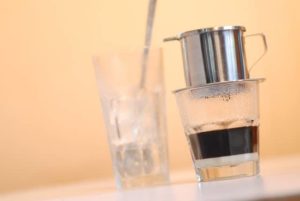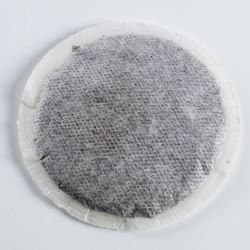As a dedicated, caffeine seeking lover of coffee, it is really tough to even contemplate the thoughts of trying out a decaffeinated cup of coffee.
However, pause for a few moments and read this article as it offers some suggestions why you should consider trying out this interesting alternative.
Now it is true that you may not want to try a decaf, or you may not even like it if you do, but one thing is sure, if you read this article, you will be much better informed about the decaf options available.
For me it is all about educating yourself, and then making a more informed decision.
Why Decaffeinated Coffee Was Introduced?
I am and always have been an avid drinker of coffee. It would not surprise you then, that I never had a great deal of interest to find out the reason why there is quite a large following of people who enjoy decaffeinated coffee.
My basic logic was that many people I know drink coffee for the caffeine fix. So when it came to trying a decaf what would be the purpose of drinking coffee without my fix?
That said I love to know everything I can about coffee and so I decided to investigate why so many people make this their preferred coffee choice.
I also know from many work mates that a number of ladies who were pregnant, or in the process of trying to get pregnant, made the decision to get off their caffeine fix. The reality for me when I first tried it was that aside from the caffeine fix, I rather liked the taste of different coffee types.
The main reason decaf was introduced was to help people who liked coffee to enjoy the taste, without getting addicted to the caffeine, which can for some people have health issues and side effects.
I shall look at those in more detail below so as you can get a full understanding.
In most cases Decaf coffee will have had at least 97% of the caffeine removed. The beans are always decaffeinated before they are roasted. So aside from the caffeine element being removed, the rest of the coffee taste and indeed nutritional value remains the same.
The issue worth pointing out here, and we think it is important, is that it is not TOTALLY caffeine free. There will always be a little caffeine in there and that can vary between 1-3%.

Benefits of Drinking Decaf
There are a lot of studies about drinking coffee and the information we get back often conflicts:
- Is coffee good for you?
- Is too much coffee bad for you?
- Is Coffee addictive?
- Does coffee make you put on weight
- Does coffee make you impotent?
- Does coffee affect your sleep?
I could rattle on about these studies, but the bottom line is that coffee, just like tea contains caffeine. Caffeine is an addictive substance, and the reality is that the more you drink, the more you will want to drink.
There are clearly some benefits of moving to decaf which I have listed below.
Just before reading those though, it is worth pointing out that although there have been lots of studies done on coffee drinkers, there are not a lot that have been completed on decaffeinated coffee.
In total over 8,000 studies covering the last 40 years have been made that cover the subject of coffee and health. Many of those contradict each other and have been confusing to the general public.
Any case studies that have have done have helped provide the limited information just below.
Difficult Sleeping or Unusual Sleep Patterns
Many people who drink coffee, especially in the evening have difficulty getting to sleep. Others may get to sleep, but may wake up a couple of hours later, and then struggle to get back to sleep.
Changing from regular coffee to a decaf in the evening can help improve the sleeping pattern and that clearly offers health benefits and prevents that tired feeling the next day.
Coffee During Pregnancy
Some research has informed us that caffeine crosses the human placenta. It then quickly creates a similar concentration in the fetus and the mother.
If coffee drinking is excessive then this has been implicated as a cause of spontaneous abortion or impaired fetal growth.
It is then recommended that women who are planning to have a baby or are pregnant should limit their coffee intake to 30 mg/day. Many women will simply switch to decaf to avoid caffeine altogether.
Coffee and Children
In a number of studies for caffeine children have been defined as another risk group. That is because the caffeine can change behaviour and increase nervousness or anxiety.
Many children don't like coffee but may like tea. Even with that it is recommended that an intake of 2.5 mg/kg body weight/day is an upper limit for caffeine consumption in children.
Normal Coffee vs Decaf Coffee
There is no scientific evidence one way or the other that has measured whether normal coffee or decaf coffee is better for your health. At the end of the day our diets are just too complex to be able to do a coffee only check.
The one thing that is different is the lack of caffeine. It is this what gives normal coffee drinkers that little hint of energy when they have their morning cup of coffee. Some coffee drinkers refer to this feeling as heightened awareness.
Both types of coffee are very rich in antioxidants which help reduce the risk of developing particular medical conditions. They are slightly reduced with decaffeinated coffee, but not by that much.
Some anecdotal evidence would also suggest that decaf coffee is slightly easier on the stomach, and as such reduces the risk of gastrointestinal discomfort.
This type of evidence is simply based on what people perceive rather than on hard fact based and tested evidence.



When Is Decaf Not Really Decaf?
If you truly want to drink decaffeinated coffee, then one strong piece of advice I can offer, is to make sure you avoid drinking coffee in cafes and restaurants. Now this does not apply to all of those establishments, but it will apply to many.
In many cafes and restaurants in the UK decaffeinated coffee actually had high levels of caffeine present. The main reason for that was that many machines and pots were not properly cleaned before the next pot was used. This is often referred to as cross brewing or cross contamination.
Now I don't want to make a huge issue out of this because not all cafes and restaurants are guilty of this. However if you want to be 100% sure then just make your decaf at home where you can be 100% certain it is decaf.
My Thoughts on Decaf
Personally I stick to normal coffee, but if someone made me a decaf there would be no complaints for me. The taste is pretty similar and although you don't get the light "buzz" of normal coffee, for me that is no big deal.
The only way to find out really is to give it a try and see what you think yourself. My experience was pleasant enough, but no that good to make me change my caffeine ways.
My advice if you are considering trying out a decaf is to spend a little extra on high quality decaf. As we explained earlier various processes are used to remove caffeine from coffee beans.
The quickest and most economical way is to use chemicals to accomplish this. Now, even though the chemicals eventually get washed away, small traces can remain.
Even those small traces can have an impact on the taste of the resulting brew. In addition to this a little of the coffee flavour can also be washed away with the caffeine.
The better and more expensive decaf beans go through what is called "the Swiss method." That is a process where the beans are heated with water and then passed through activated charcoal.
This process helps bond the caffeiene, leaving the beans with reduced caffeiene but the majority of their original taste.
There is another well known decaf process known as the Hevla process. This is even more sophisticated.
In this process the coffee beans are steamed at high pressure and the caffeiene removed, without any real change to the flavour.
Resources Used - Coffee Research
Scientists wake up to coffee benefits - British Medical Journal
Coffee & Health - Science Direct
Effects of Caffeinated and Decaffeinated Coffee on Body Weight and Glucose Tolerance - US National Library of Medicine





This is a really interesting post! I’ve never really know that much about decaf coffee so it’s definitely good to hear some insights. It’s interesting that the process of removing caffeine can occasionally remove flavour – I think that’s why I’d be worried to make the switch. You can get all sorts of decaf coffees now however, including flavoured decaf coffees! So might be worth a shot.